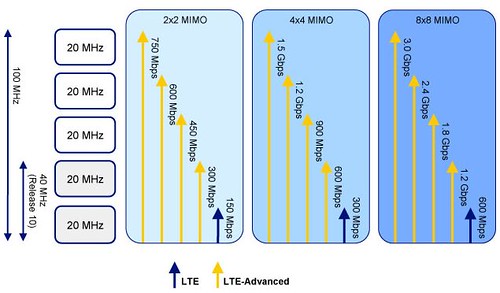MobiTV announced a collaboration with Jabil Circuit to develop an HDMI dongle similar to Google’s Chromecast to wireless carriers. It can deliver video programming to multiple devices in subscriber homes, including TVs, tablets and smartphones, says FierceCable.
The HDMI dongle would help wireless operators increase the average revenue per user (ARPU) in the connected home.
MobiTV declined to say whether the Jabil device would support LTE. “Unfortunately, the LTE capabilities is not something that MobiTV can discuss at this time,” spokeswoman Olga Walsh told FierceCable.
Verizon acquired Intel’s OnCue virtual cable platform last month and is expected to launch a virtual cable platform which would allow it to deliver live and on-demand content to viewers nationwide.
Verizon is also rolling out LTE Broadcast which lets cellular carriers “broadcast” to multiple users on a single cellular channel. MobiTV’s HDMI dongle may enable users to “multi-cast” inside the home.
Verizon’s FiOS home television and Internet service is limited by high costs and a non-compete agreement with the largest cable companies. Cities generally negotiable cable franchise fees with a single cable operator because it is generally thought multiple providers would be too costly.
But cable’s non-compete agreements don’t apply to wireless service.
Comcast generated $200 million in retransmission-consent fees from its NBC stations in 2013–an increase of about 400 percent compared to the fees it collected from cable operators and satellite TV providers in 2012.
Comparing the three different delivery technologies – IPTV, cable and satellite – IPTV had just 10.9% of the total of some 85 million TV subscribers in the United States by the eight major operators.
At the end of Q412, about 48.7% were using cable, with 40.4% using satellite.
Google’s Gigabit Internet service costs $70 a month in Kansas City and about $50 more for TV service. With fiber to nearby LTE-A towers delivering 25 Mbps to the home, wireless cable service could cost less and provide mobility.
Every year at MWC, I assume Google, Microsoft, Facebook, Amazon or Apple will announce a “wireless cable” initiative, in conjunction with Sprint, which has some 150 Mhz available in the 2.6 GHz band.
Every year I’m wrong. Maybe the holdup is a 600 Mbps LTE-Advanced modem chip (with 40-60 MHz carrier aggregation) and 4X4 MIMO. Maybe it’s just not feasible yet.
Whatever. But if Verizon wants to “multicast” wireless cable they’re going to need more than a 20 MHz swath at 600 MHz.
Related Dailywireless articles include; Zuckerberg Calls for “Free” Internet, Google Fiber Expands to More Cities, Comcast Buying Time Warner Cable, Video Dominates Mobile, Aereo Wins Court Battle with Broadcasters, LTE Broadcast Mobilizes at MWC, H.265 Gets Real, Aereo Vs LTE Broadcast: Fight!, Mobile Video on Diet with Social Graph, DIAL: Smart TV App Browses for Movies, Mobile: The New Television, Verizon & AT&T Launch Targeted Advertising CBS Helps Launch Dish Hopper with Sling, What is Miracast?,Mobile TV at NAB 2012, Mobile TV Handsets: Two Flavors, Ad-Sponsored WiFi Initiatives from Gowex & Facebook and Comcast Creates Hotspot 2.0 National Network
Posted on Tue, 25 Feb 2014 21:23:37 +0000 at http://www.dailywireless.org/2014/02/25/...ompetitor/
Comments: http://www.dailywireless.org/2014/02/25/.../#comments



